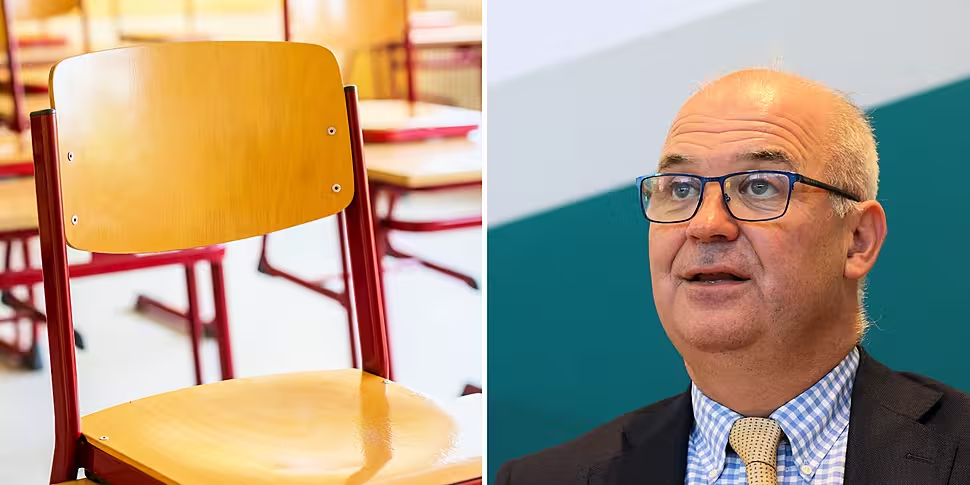Thousands of children are returning to school after a change to contact tracing rules.
From today contact tracing of close contacts in primary schools and crèches will not be carried out.
Children aged 12 or under, who are close contacts and are asymptomatic, will not have to restrict their movements.
Here are the changes in full:
- Contact tracing of close contacts in childcare facilities and primary education and testing of asymptomatic close contacts in childcare facilities and primary education will no longer be necessary
- Children aged 12 years or under, who are identified as close contacts in childcare and educational settings or other non-household settings - and who are asymptomatic - will no longer be required to routinely restrict movements
- Those in special educational settings and respite care should have a public health risk assessment, which may still require children to be identified as close contacts and have their movements restricted
- Children aged 12 years or under, who are identified as household close contacts, will still be required to restrict movements and be tested - regardless of whether or not they have symptoms
Public health advice remains that any child aged 12 years or under who displays COVID-19 symptoms consistent should rapidly self-isolate, not attend childcare or school or socialise and follow all medical and public health guidance.
The Chief Medical Officer Dr Tony Holohan says there has been a "significant increase" in the numbers of children referred for testing.
"Over the last few weeks, it has been heartening to see our young people across the island return to in-person learning in educational settings.
"The role education plays in our society is immense, and, throughout this pandemic, the necessary public health measures have been designed to protect this vital sector and the wider school community from the worst impacts of COVID-19."
"The resumption of in-person education was associated with a significant increase in the numbers of children referred for testing in recent weeks. This was entirely to be expected.
"We know that parents and teachers are doing an excellent job being mindful of symptoms and arranging tests as per the current public health advice.
"Despite this increased testing, there has only been a relatively modest increase in the detection of cases in the school going age group.
"We have also seen the associated positivity rate recently decrease from 16% to 5% which is very reassuring."
He says while schools are a "low risk setting" for the transmission of COVID-19, these changes will be monitored.
"Of course, it may take some time to adjust to this new advice for close contacts and if you have any concerns at all relating to symptoms of COVID-19 you should contact your GP and be guided by their advice.
"The National Public Health Emergency Team (NPHET) will continue to monitor the trajectory of the disease.
"At this point in the pandemic, we are all very familiar with the public health advice that will continue to keep us safe, both in school and as we take part in all of the other hobbies and activities that are available to us.
"Vaccination remains our best means of protection against COVID-19."
Those displaying symptoms of COVID-19 - like a cough, fever, fatigue, headache or sore throat - should isolate and contact their GP, who will advise if they need to arrange a test.
Vaccinating younger children
It comes as Children's Minister Roderic O'Gorman says vaccinating the over-fives is "definitely something we are looking at rolling out here."
When asked if vaccination was likely to begin before Christmas, he told Newstalk it was entirely dependent on the vaccine's approval by regulators.
"I imagine it [approval] would be a number of months away before the Irish and European health authorities would be making final determinations on the usability of that particular vaccine", he said.
It also follows news that the Pfizer-BioNTech vaccine had been proven safe and effective for children between the ages of five and 12.
At clinical trials, children were given a smaller dose than adults, with a second shot administered 21 days later.
Scientists found that children developed antibody responses of a similar level to those aged between 16 and 25.









